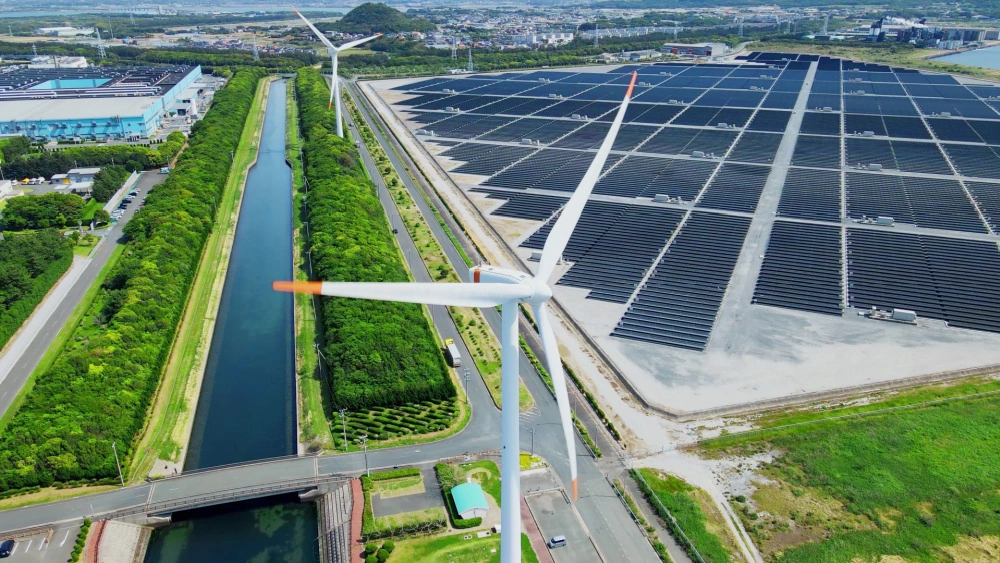
Fighting the good fight: Navigating disputes in the UK’s growing BESS market

By Dickon Court, Lee Ward
30 Oct 2024 | 6 minute read
As the UK's BESS market continues to expand and develop, it is inevitable that there will be disputes along the way.
Issues can arise at any (or all) of the key project stages (design, planning, construction, and operation) due to the complex nature of these projects. Understanding these potential issues, and the various form in which they can arise – from planning challenges to contractual disagreements – is essential for all stakeholders of a BESS project. By being aware of the potential issues, stakeholders can put in place future strategies and contractual arrangements to mitigate the effects of any challenges.
Below are some of the common themes that the team sees as giving rise to disputes and how they can be mitigated or managed to support an as seamless deployment of a BESS project as possible.
Regulatory and planning challenges
Various regulatory bodies have different priorities, which can create overlapping responsibilities, ambiguity in guidelines and regulatory challenges. Developers can therefore often face uncertainty regarding planning requirements, operational standards, and safety regulations. This lack of clarity can result in delays and increased costs, sparking disputes between developers and regulatory authorities.
Securing planning permission can be a hurdle for developments. Local authorities may reject applications or impose onerous conditions on a project due to concerns about its environmental impact or objections raised by the community. These types of delays can lead to disputes between developers and planning authorities or other responsible bodies. In addition, disagreements may arise between different project stakeholders (for instance between a developer and a funder or between two partners in a co-development relationship) if expectations regarding the anticipated timeline for development are not met.
Funding and investor disputes
BESS projects often involve complex funding arrangements, which may include forward payments being made typically towards the required securities under a grid connection offer or towards the costs associated with submitting a planning application. In other instances, payments are made upon the achievement of certain milestones of the project (for instance, securing a planning permission that is immune from challenge).
In these instances, disputes around the timing of payments can arise, particularly where the preconditions for a payment being made have not been clearly defined by the parties.
Investors may also seek returns based on projected revenues from energy supply or trading in the capacity market and disputes can occur when revenues fall short of those projections. Disagreements can also arise if investors consider that a project's anticipated return on investment was misrepresented by the developer or project owner, and/or it is not performing as expected.
Where energy trading or ancillary services' revenues do not align with anticipated projections, investors may seek compensation for revenue shortfalls. If so, disputes are likely to arise over how losses are shared or over the terms of any revenue-sharing agreements.
Warranty and performance assurance obligations and interface risks
Disputes can arise if a project underperforms, fails to meet operational expectations, or does not adhere to the agreed upon contractual terms.
A manufacturer of a BESS will provide the purchaser of the system with a warranty regarding the BESS' performance over a specified period. The contractor responsible for the procurement and installation of the BESS will be expected to also warrant the BESS' performance to the developer and the ultimate owners of the BESS and will only be prepared to do so to the extent that it is covered by the manufacturer's warranty.
These types of warranties include complex calculations as regards the availability, round-trip efficiency and capacity of the BESS and are subject to various caveats. Performance shortfalls can trigger warranty claims and lead to disputes between developers, contractors, and investors regarding the way discrepancies between the warranted and actual performance are calculated and subsequent compensation and/or liability for repairs or replacement (depending on the terms of the warranty).
As the BESS market continues to grow and develop, the increase of multi-party and multi-contract arrangements will not make these issues any easier and disputes regarding the apportionment of responsibility for defects or costs will become more prominent.
Grid connection and service reliability
It will be of no surprise that a significant challenge for BESS projects is securing a timely and cost-effective grid connection. The UK's grid has limited capacity and competition for connections is increasing. With uncertainty over connection dates, contractors are unwilling to take the risk of grid delays and the potential for high delay liquidated damages to be paid. On the other hand, developers and owners of BESS projects are relying on the timely energisation of the BESS, as a means of securing their revenue. Disputes around the interpretation of 'delay events' in construction contracts and the remedies that are available to developers or project owners are rife.
When it comes to long-term service contracts for BESS systems, the contractor's timely and proper performance is key. BESS systems are used to provide grid balancing services such as frequency response and voltage support. Failure to operate in accordance with the agreement reached with the grid balancing counterparty could result in significant penalties being imposed on the developer or owner of the BESS, which they will in turn look to pass down to the contractor. In this context, disputes around establishing a particular contractual breach, causation and quantum can arise.
How might disputes be avoided?
Disputes cannot always be avoided. However, the risk of disputes arising can be reduced with proper planning and proactive contract management. To foster smoother project development and operation, BESS developers, owners and operators can adopt proactive strategies to minimize the risk of planning, performance, regulatory, contractual and/or financial issues. Below are some key points to consider when considering proactive strategies to implement:
1. Comprehensive Due Diligence: Proactively engaging with key stakeholders and local authorities early in the planning process can go far in addressing community concerns and alleviating any opposition to a proposed project. Planning applications should also be thorough and include detailed assessments, particularly if a proposed project is environmentally sensitive. Early assessments of grid connection feasibility should also be carried out as securing grid access at the right time and cost will be key for the viability of a project. Conducting a review of the relevant contracts to ensure compliance with all relevant regulations and industry standards will also ensure developers are in the best position to proceed with a proposed project.
2. Early and Transparent Engagement with Investors: Communicating realistic financial projections, associated risks and challenges, and regularly updating stakeholders on the projected financial performance of a project, will go a long way to manage expectations and reduce the risks of dispute over revenue shortfalls. Having in place a risk management strategy for operational, financial and regulatory risks will also reassure funders that potential issues can be handled effectively.
3. Draft Clear and Comprehensive Contracts: Disputes often arise from vague or poorly defined terms within a contract. Construction contracts should clearly set out the scope of works, deliverables, performance warranties, product warranties that will be provided and any penalties for under-performance or delay in performance. This will ensure alignment between the parties and can provide a framework to abide by if any metrics are not met. Maintenance and service agreements should also clearly define each party's responsibilities for system upkeep, repairs, and upgrades. Warranties should be reviewed to ensure that the developer or owner is aware of the actions or omissions that could invalidate a warranty. Well-defined agreements will reduce the risk of any disputes or issues arising over system failures or downtime.
4. Set Out Clear Dispute Escalation/Resolution Processes: Contracts ought to contain a dispute resolution or dispute escalation mechanism. It is advisable that as a first-step, parties are required to discuss any issues amongst themselves at a senior level, before
By adopting a proactive approach that includes careful planning, strict regulatory compliance, clear contractual agreements, and dispute resolution mechanisms, many disputes can be avoided or quickly resolved. If you have any concerns regarding an existing or proposed project, please get in touch with our team of experts.











